As a BetterHelp affiliate, we receive compensation from BetterHelp if you purchase products or services through the links provided
Binge eating when you’re high might feel like an uncontrollable habit, but it doesn’t have to be. Often fueled by cannabis consumption, binge eating can harm your physical and mental well-being. With the right approach and mindset, you can take charge and prevent compulsive eating after getting high.
Understanding why you binge eat when high is the first step towards change. Cannabis consumption can increase your appetite, making it challenging to resist the urge to snack. You can successfully curb your overeating tendencies when under the influence by identifying your triggers and working on strategies to keep your munchies in check.
It’s important to remember that overcoming binge eating when high gradually requires patience and commitment. By implementing practical tips and tricks to manage your cravings, you can gradually achieve a healthier relationship with food, even when high.
Key Takeaways
- Identifying binge eating triggers can help you control compulsive eating after cannabis consumption.
- Understanding the link between cannabis and appetite can help you develop strategies to manage cravings.
- Patience and persistence are key to gradually overcoming binge eating when high.
 Understanding Binge Eating Disorder
Understanding Binge Eating Disorder
Main Causes and Risk Factors
Binge eating disorder is a complex condition influenced by several factors. Some of the common causes and risk factors include:
- Age: It usually starts in late adolescence or early adulthood.
- Genes: A family history of eating disorders can increase your risk.
- Stress: High-stress levels can trigger binge eating episodes.
- Mental health: Depression, anxiety, and low self-esteem can contribute to binge eating.
Knowing these causes is essential to help identify the disorder and find appropriate solutions.
Common Symptoms and Warning Signs
If you’re struggling with binge eating, you might experience the following warning signs:
- Eating large amounts of food quickly
- Feeling guilty, ashamed, or disgusted after overeating
- Feeling out of control while eating
By recognizing these symptoms, you can take the necessary steps to improve your eating habits and emotional well-being.

Binge Eating and Mental Health
Binge eating often has emotional and behavioral components. It can be linked to emotional eating, where people turn to food for comfort or stress relief. People with binge eating disorder may also struggle with other mental health issues like depression or anxiety. If you suspect your binge eating is tied to mental health concerns, seeking help from a mental health professional can be beneficial.
Possible Effects of Binge Eating Disorder
Untreated binge eating disorder can severely affect your personal life, physical health, and mental well-being. Some potential effects include:
- Obesity: Binge eating can lead to excessive weight gain.
- Heart disease: Obesity and unhealthy eating habits increase the risk of heart problems.
- Type 2 diabetes: The combination of unhealthy eating patterns and obesity can raise the risk of developing diabetes.
Addressing the root causes of binge eating disorder and establishing healthier habits can prevent these complications and improve your overall quality of life.
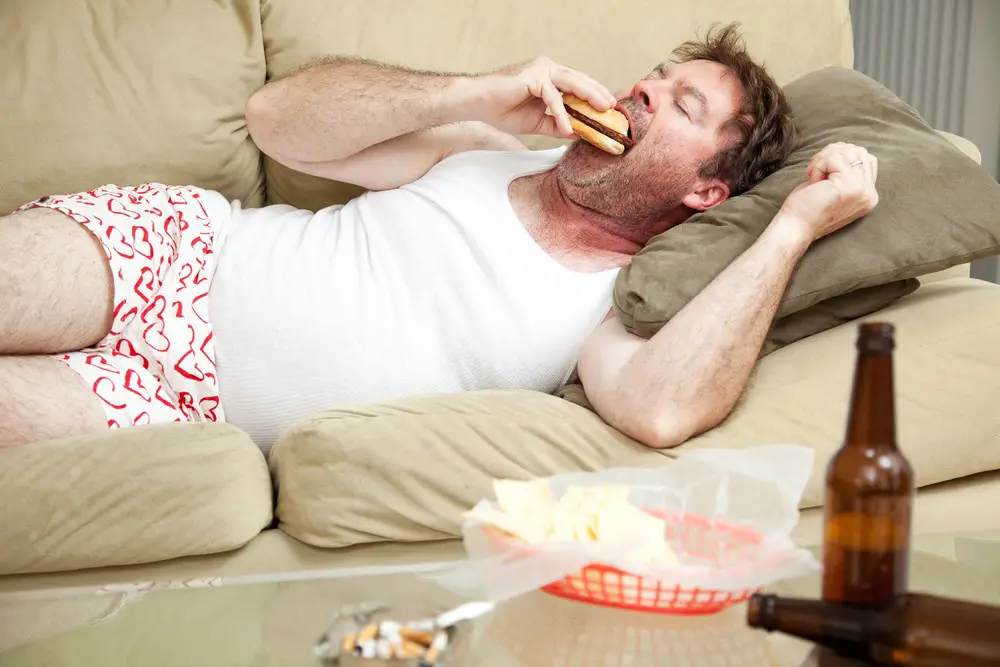
How Binge Eating Manifests When High
Cannabis Consumption and the Munchies
When you indulge in cannabis, it’s common to experience the munchies. You might find yourself feeling extremely hungry and reaching for more and more food to satisfy your cravings. But what’s causing this?
Cannabis activates your brain’s CB1 and CB2 receptors, increasing appetite and reducing pain perception. This, in turn, can lead to overeating and compulsive eating behaviors. Remember these factors while relaxing with a bowl of your favorite strain. It’s crucial to remember that moderation is the key in preventing your munchies from going off the rails.
The Body’s Response to Overeating
Binge eating disorder (BED) is a type of eating disorder characterized by excessive eating in a relatively short period. It’s crucial to recognize the signs of BED and overeating when consuming cannabis, as the two can be closely related.
As you keep reaching for more food, your body struggles with the excessive load. Blood sugar levels rise, and you might still feel the need to eat more, even though you’re full. Pay attention to how your body feels and avoid getting trapped in the vicious cycle of overeating when high.
Key takeaway: Be aware of the munchies’ effects on your body, enjoy your cannabis experience in moderation, and listen to your body’s signals to avoid the pitfalls of binge eating when high.
Taking Control
Strategies to Prevent Overeating
Developing strategies to prevent overeating is crucial when trying to control binge eating. A few tactics you can consider include:
- Identifying your triggers and removing them from your environment
- Planning your meals throughout the day to avoid excessive hunger
- Having healthy snacks on hand to curb hunger pangs
- Practicing self-control and resisting temptation by not skipping meals
With these techniques, you can better manage your eating habits and avoid over-indulgence.
Professional Help and Treatments
If you find it challenging to manage your eating habits, seeking professional help and treatments can be incredibly useful. Medical professionals, therapists, and support groups can provide therapy, psychotherapy, and medications to aid recovery. Remember, your support system is there to help guide you through this journey.
Creating and Adhering to a Healthy Diet
Creating a well-rounded meal plan with nourishing, unprocessed foods is vital for taking control of your binge eating. To get started, ensure your diet includes:
- Breakfast to kick-start your day
- Whole grains for sustained energy
- Fruits and vegetables to boost your nutrient intake
- Adequate fiber to feel full longer
Incorporate these components into your diet to help maintain regular eating patterns and avoid overeating.
The Importance of Regular Exercise
Regular exercise not only helps you maintain a healthy weight, but it also has a tremendous impact on your mental well-being. Exercise releases endorphins that combat feelings of anxiety, depression, and stress. By incorporating a fitness routine into your lifestyle, you’ll notice increased energy levels and greater comfort.
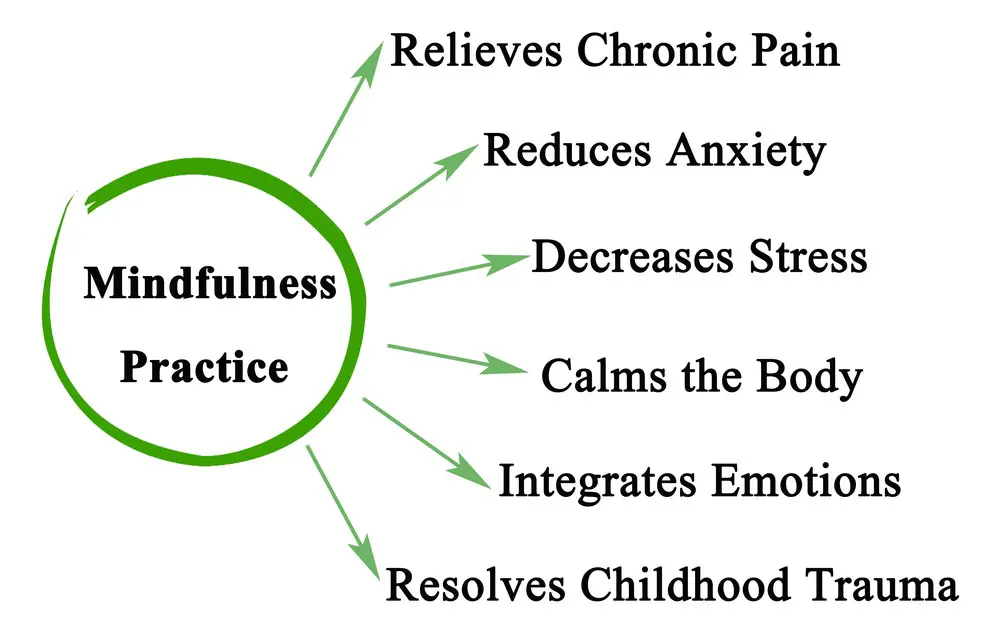
Practicing Mindfulness and Meditation
Mindfulness meditation, yoga, and breathing exercises can help you focus on the present moment and regulate your emotions. These practices enable you to build self-awareness and nurture a healthy relationship with food, alleviating guilt, shame, and low self-esteem often associated with compulsive and emotional eating.
Emotional and Behavioral Changes
Making emotional and behavioral changes is crucial for overcoming binge eating. Recognize your emotions, develop coping mechanisms, and create healthier habits. With time and practice, you’ll notice a significant change in your relationship with food, allowing you to regain control over your eating patterns.

Journey to Mindful Munchies: Embracing Healthier Habits Amidst Highs and Heartfelt Communion
Indulging in a snack or two while enjoying a high is one thing, but sometimes it might tip over into binge eating. This journey of self-awareness and moderation isn’t just about food; it’s also about understanding oneself and making healthier choices. Let’s explore some signs that might indicate a need for professional help, how to set realistic goals for therapy, and how to monitor progress.
Signs You Might Need Therapy
- Loss of Control: Feeling unable to stop eating even when full.
- Eating in Secret: Hiding your eating habits from others out of embarrassment.
- Physical Discomfort: Experiencing physical discomfort or health issues related to overeating.
- Impact on Daily Life: Finding that binge eating is affecting your ability to function or enjoy life.
Setting Goals for Therapy
Therapy aims to foster a healthier relationship with food, even when you’re high. Goals might include:
- Mindful Eating: Learning to eat mindfully and understanding the triggers for binge eating.
- Coping Strategies: Developing coping strategies to manage cravings.
- Nutritional Education: Understanding the nutritional implications and making healthier food choices.
- Emotional Resilience: Addressing emotional triggers and developing healthier coping mechanisms.
Monitoring Progress
Success isn’t just about the number on the scale; it’s about fostering a healthier mindset towards food and oneself.
- Reduced Frequency of Binge Eating: Notice a decrease in the frequency and severity of binge-eating episodes.
- Improved Coping Strategies: Utilizing new coping strategies learned in therapy when faced with triggers.
- Better Nutritional Choices: Making healthier food choices even when high.
- Enhanced Emotional Well-being: Feeling more emotionally balanced and less likely to seek comfort from food.
Remember, overcoming binge eating, especially when high, is a journey that requires patience, self-compassion, and professional support. By recognizing the signs, setting clear goals in therapy, and monitoring progress, individuals can cultivate a healthier relationship with food and enjoy a more balanced and mindful munching experience.
Frequently Asked Questions
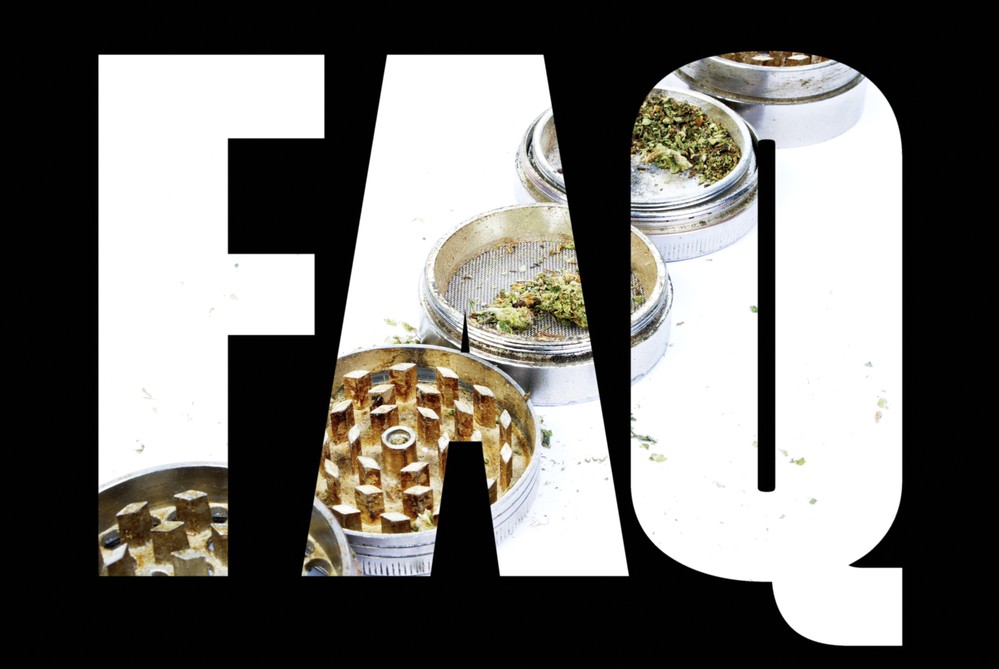
What techniques can help control food intake while high?
To control your food intake while high, try these techniques:
- Drink plenty of water to ensure you’re well-hydrated
- Chew gum or eat ice chips to keep your mouth occupied
- Keep a food diary so you know what you’re consuming
- Set portions ahead of time to avoid mindlessly snacking
- Keep healthy snacks around so you’re less inclined to reach for unhealthy options
Key takeaway: Stay mindful of what you put in your mouth while high, and have a plan to control your intake.
What strategies can help avoid overeating when stoned?
Overeating when stoned can be avoided by employing the following strategies:
- Eat a satisfying, nutrient-dense meal before partaking in cannabis
- Limit your access to tempting, calorie-filled snacks
- Distract yourself with activities that don’t involve eating
- Remind yourself about your health and fitness goals
- Create a supportive environment with friends who share your priorities
Key takeaway: Be proactive in setting yourself up for success so you don’t fall into the trap of overeating when stoned.
How can I manage the munchies effectively?
Effectively managing the munchies involves a few key steps:
- Recognize your triggers and plan accordingly
- Prioritize self-control and mindfulness techniques
- Make sure you’re hungry before eating
- Opt for healthier alternatives when cravings strike
- Practice patience and remember that cravings will pass
Key takeaway: Know your patterns and find tailored solutions to stay in control during munchie attacks.
What are some healthy alternatives to curb cravings when high?
Consider these healthier options to curb cravings when high:
- Fresh fruit and vegetables
- Nuts and seeds
- Yogurt or cottage cheese
- Rice cakes with almond butter
- Whole grain crackers with hummus
- Popcorn (without butter and excessive salt)
Key takeaway: Healthier alternatives can help satisfy your cravings while providing some nutritional value.
How to set limits on food consumption during a high?
Here are some tips to set limits:
- Have a meal before using cannabis so you’re not as hungry
- Establish a food budget and track your consumption
- Use smaller plates to make portion sizes appear larger
- Determine which snacks are “off-limits” and avoid having them in your environment
- Get a buddy who can hold you accountable and encourage you to stick to your limits
Key takeaway: Know your weaknesses and create a structure to help you stay within your limits.
What activities can distract from eating when under the influence?
Distracting activities can include:
- Watching movies or playing video games
- Engaging in creative outlets like drawing, painting, or writing
- Listening to music or playing an instrument
- Going for a walk, doing yoga, or light stretching
- Engaging with friends who don’t eat high-calorie snacks while high
Key takeaway: Develop a list of enjoyable, engaging activities to help take your mind off food when under the influence.
About Jacob Maslow
After surviving the traumatizing events of 9/11, I took it upon myself to heal through helping others. I’m the primary caregiver of my children and understand from first-hand experience the lonely paths you have to walk as a partner and parent when leaving an unhealthy relationship.
We’re all echoing in a dark space that doesn’t have to be this empty, and that’s been my mission since finding solace and recovery in therapy: To help comfort others who are still in shock and at the prime of their struggle.
I came across BetterHelp after searching for this type of community. I wanted to belong to a body of proactive therapists and supportive therapy veterans that allowed me to see other sides of the story.
It was unconventional, and that’s what attracted me most. During my most challenging times, when my ex-wife completely cut me off from my children, I found comfort and clarity through BetterHelp.
Instead of being chained to a strict therapist recommendation, I was in charge of who I felt understood my struggle most. That allowed me to find my true peace, as I was reunited with those who read behind my words and had first-hand experience with my trauma.
Recovery is a choice; with BetterHelp, that choice will be a few clicks away. You can join their couples-oriented platform, Regain.us, for those stuck with family estrangement and toxic relationship patterns.
- How to Transform a Home’s Patio Space into a Relaxing Space - March 23, 2025
- 5 Strategies to Use a Cell Phone to Help Manage Your Stress - March 23, 2025
- 4 Ways to Use Measurements to Create a Relaxing Sleep Space - March 23, 2025
This site contains affiliate links to products. We will receive a commission for purchases made through these links.

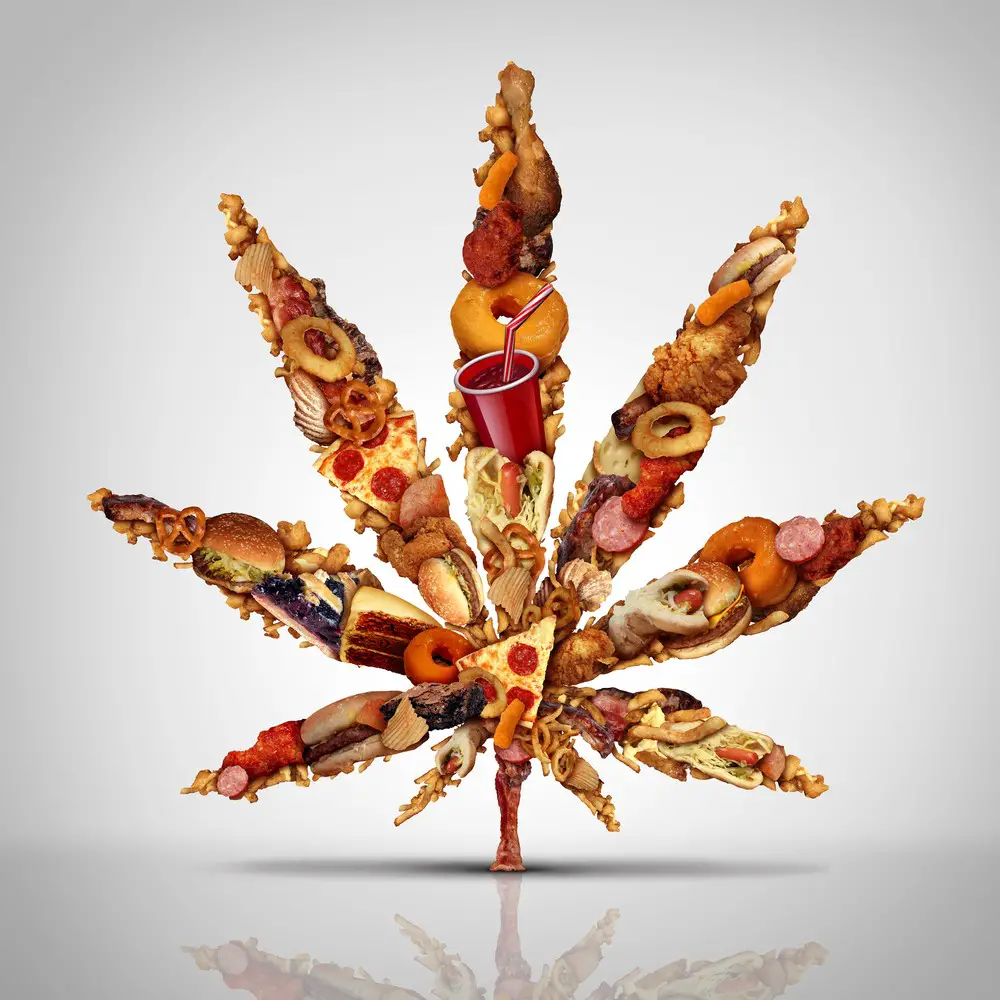
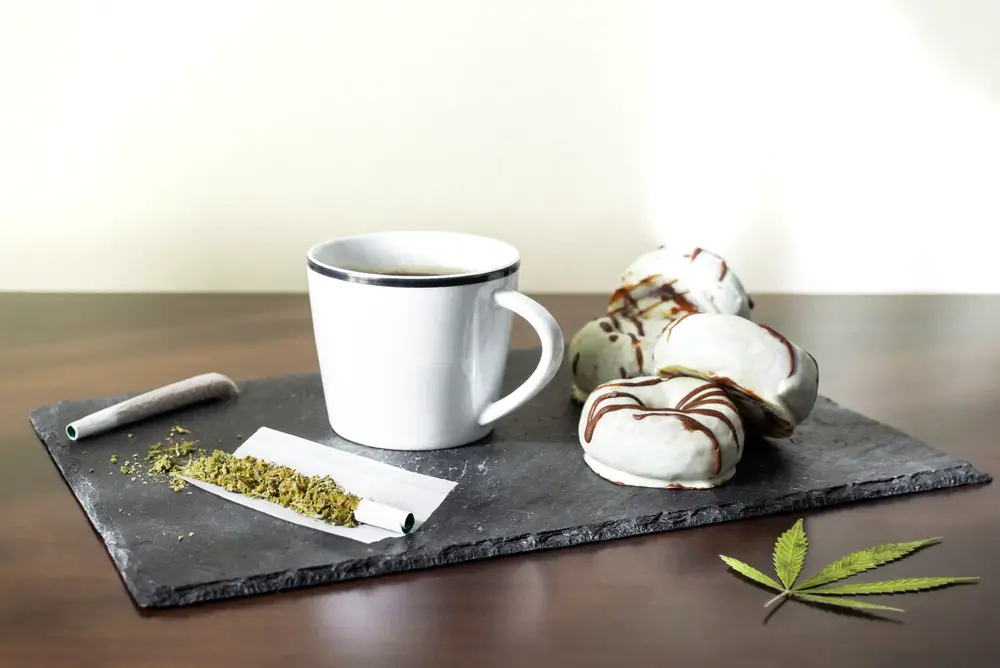 Understanding Binge Eating Disorder
Understanding Binge Eating Disorder
